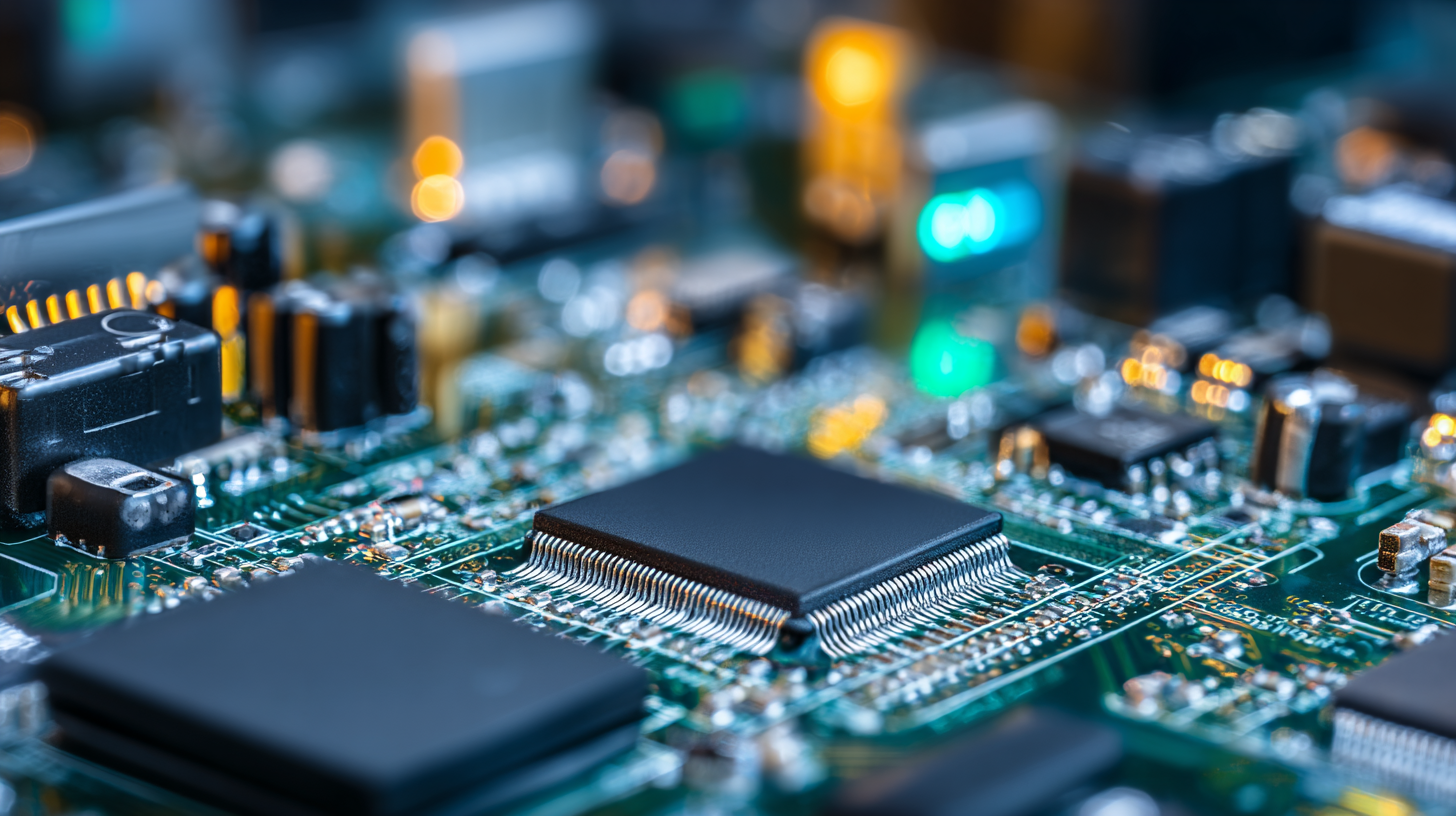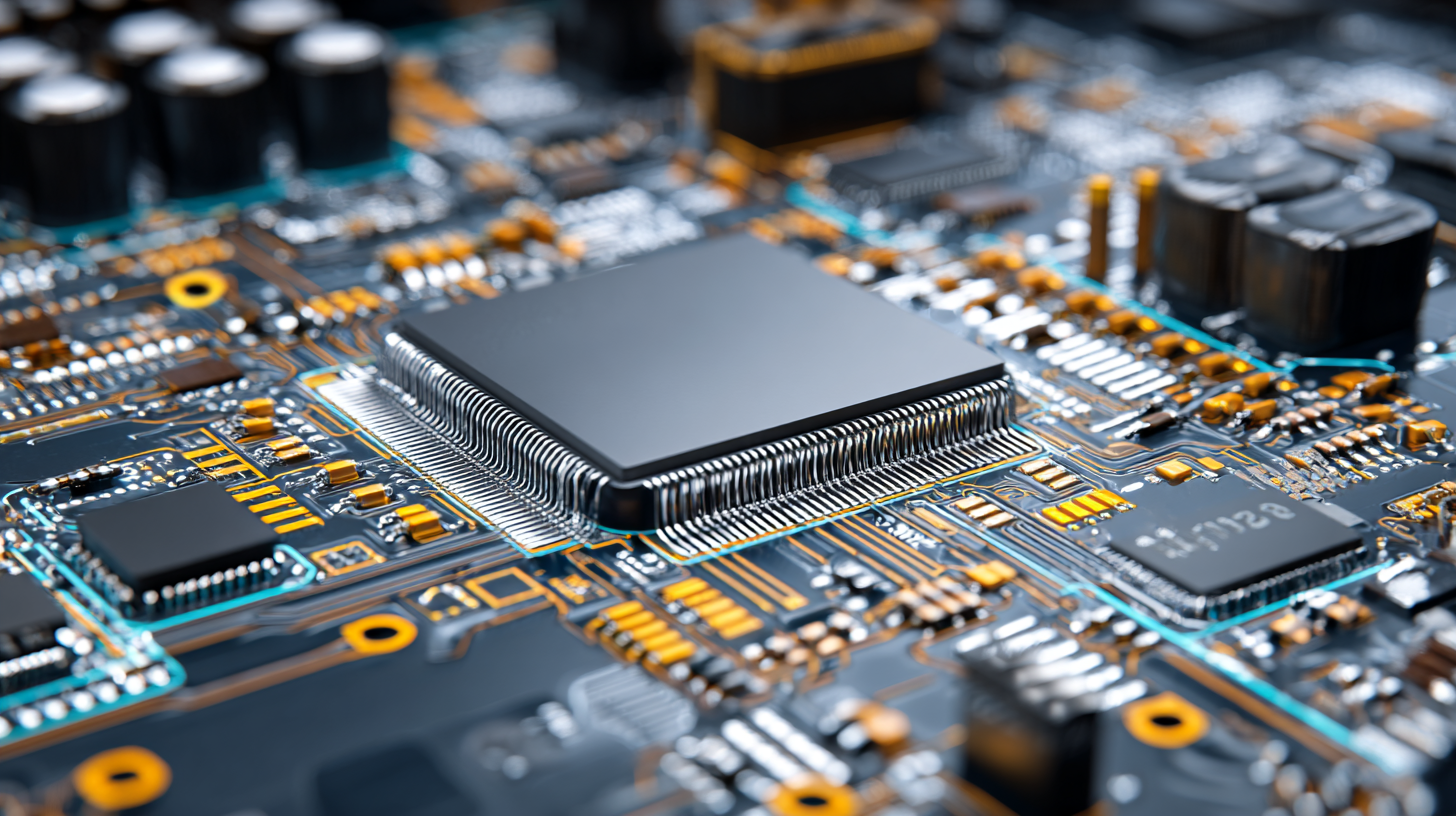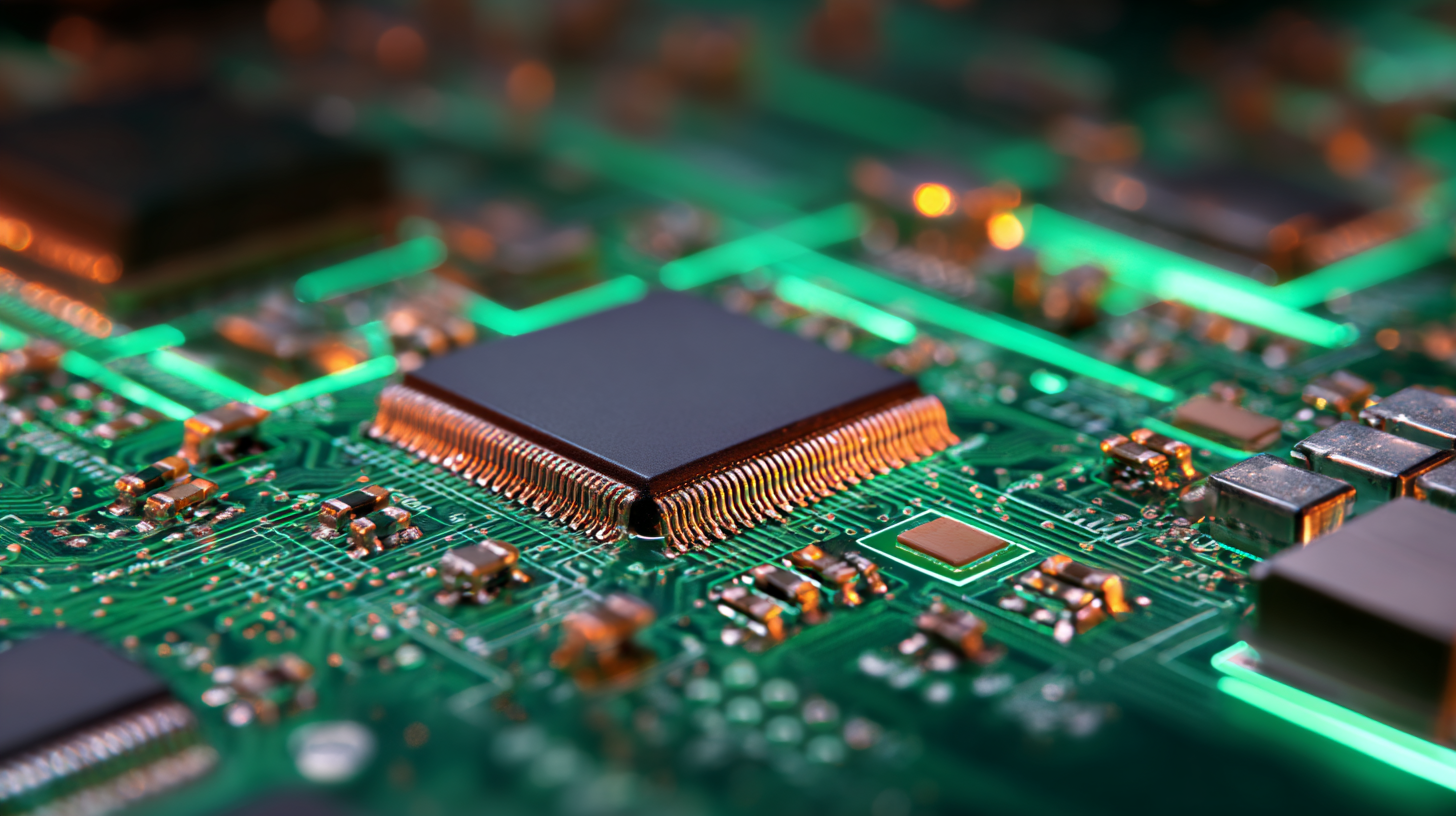In the rapidly evolving landscape of modern electronics manufacturing, the need for speed and efficiency has never been more critical. "Quick turn PCB assembly" has emerged as a pivotal solution, enabling manufacturers to accelerate their production timelines while maintaining high-quality standards. This approach not only facilitates faster time-to-market for electronic products but also allows for greater adaptability in meeting consumer demands and market trends.

As industries increasingly prioritize agility and innovation, the adoption of quick turn PCB assembly processes reveals essential data insights that highlight significant shifts in manufacturing strategies. This exploration delves into the transformative impact of quick turn PCB assembly on electronics production, presenting trends and analytical perspectives that illustrate its integral role in enhancing competitiveness and fostering technological advancement in the field.
The evolution of quick turn PCB assembly has significantly transformed the landscape of electronics manufacturing, driven by the demand for rapid innovation and market responsiveness. Initially, PCB assembly processes were lengthy and labor-intensive, which posed challenges in meeting the fast-paced needs of technology developers. However, advancements in automated systems and manufacturing technologies have streamlined production timelines, allowing companies to produce PCBs in a matter of days rather than weeks.
Moreover, the shift towards quick turn PCB assembly has fostered a more collaborative environment among engineers, designers, and manufacturers. This close interaction enables real-time feedback and iterative design improvements, ultimately resulting in higher quality products. With the increasing complexity of electronic devices, the ability to produce prototypes quickly has become essential, providing companies with a competitive edge. As a result, the trend towards rapid PCB assembly has not only optimized production efficiency but also spurred innovation across various industries, making it a cornerstone of modern electronics manufacturing.
| Year | Industry Growth (%) | Average Turnaround Time (Days) | Market Size (Billion $) | Key Technologies Adopted |
|---|---|---|---|---|
| 2018 | 5.5% | 14 | 22.4 | SMT, Automation |
| 2019 | 7.2% | 12 | 24.1 | AI, IoT Integration |
| 2020 | 8.0% | 10 | 26.5 | Cloud Services, EDA Tools |
| 2021 | 10.1% | 9 | 29.3 | Additive Manufacturing |
| 2022 | 12.4% | 8 | 32.9 | Robotics, Advanced Materials |
| 2023 | 14.0% | 7 | 36.7 | 5G Technology, Nanoelectronics |
The adoption of quick turn PCB services is transforming the landscape of modern electronics manufacturing, driven by the need for speed and efficiency. One of the key trends propelling this adoption is the rapid pace of technological advancements in consumer electronics. As products become more complex and feature-rich, manufacturers must respond quickly to market demands. This has led to a significant increase in the need for rapid prototyping and low-volume production runs, where quick turn PCB services can significantly reduce lead times and enhance the overall development process.

Another driving force behind the popularity of quick turn PCB services is the growing emphasis on innovation and time-to-market. Companies are increasingly competing to launch new products faster than their competitors, making rapid PCB assembly a crucial component of their strategy. Additionally, the rise of IoT devices and smart technologies requires manufacturers to implement short, iterative development cycles. Quick turn services facilitate this by enabling teams to test and iterate designs swiftly, ultimately resulting in higher quality products that can adapt to dynamic consumer preferences and technological changes.
In the realm of modern electronics manufacturing, Quick Turn PCB Assembly has emerged as a significant trend, driven by the need for faster production cycles and rapid market deployment. This method significantly enhances the performance metrics associated with PCB manufacturing. For instance, the average turnaround time for prototyping has decreased from weeks to just a few days, allowing companies to iterate designs swiftly and respond to consumer demands with unprecedented agility.
Data insights reveal that companies adopting Quick Turn PCB Assembly have experienced a substantial increase in output efficiency and reduced lead times. Metrics such as cycle time reduction can be quantified; many businesses report up to a 50% decrease in assembly time. Moreover, this quick response capability not only streamlines the workflow but also minimizes production costs. The ability to swiftly bring products from concept to market is reshaping competitive strategies, compelling manufacturers to leverage data-driven insights for optimizing their processes and ensuring quality control amidst rapid production scales.
 The implementation of quick turn PCB processes presents several challenges that manufacturers must navigate to enhance their production efficiency. One of the primary difficulties is maintaining the high quality and reliability of PCBs while accelerating the assembly process. Rapid production often leads to a rush in quality assurance, which could result in errors that compromise the performance of electronic products. To address this, companies are adopting advanced inspection technologies and automated testing methods to ensure stringent quality control without significantly extending lead times.
The implementation of quick turn PCB processes presents several challenges that manufacturers must navigate to enhance their production efficiency. One of the primary difficulties is maintaining the high quality and reliability of PCBs while accelerating the assembly process. Rapid production often leads to a rush in quality assurance, which could result in errors that compromise the performance of electronic products. To address this, companies are adopting advanced inspection technologies and automated testing methods to ensure stringent quality control without significantly extending lead times.
Another major challenge involves supply chain logistics. Quick turn PCB assembly relies heavily on the timely availability of materials. Disruptions in the supply chain can lead to delays and increased costs, ultimately negating the benefits of expedited production. To mitigate this issue, manufacturers are increasingly forming strategic partnerships with suppliers to secure priority access to essential components. Additionally, implementing just-in-time inventory systems can help streamline operations, allowing for a more responsive and flexible manufacturing process that keeps pace with market demands.
The rise of quick turn PCB assembly has significantly reshaped the landscape of modern electronics manufacturing, positioning itself as a key driver of innovation. As market demands shift towards faster product development cycles, companies are increasingly relying on quick turn services to rapidly prototype and test new designs. This agility allows manufacturers to stay ahead of competitors by shortening time-to-market, facilitating iterative testing, and adapting to consumer feedback in real-time.
Moreover, quick turn PCB assembly enhances competitiveness by enabling firms to focus on research and development rather than getting bogged down by lengthy manufacturing processes. By streamlining the production of printed circuit boards, businesses can allocate more resources to innovation, thereby fostering the creation of cutting-edge products that meet evolving technological needs. As this trend continues, the role of quick turn PCB assembly will only become more crucial, driving not just efficiency, but also inspiring breakthrough advancements in the electronics industry.




| Cookie | Duration | Description |
|---|---|---|
| cookielawinfo-checkbox-analytics | 11 months | This cookie is set by GDPR Cookie Consent plugin. The cookie is used to store the user consent for the cookies in the category "Analytics". |
| cookielawinfo-checkbox-functional | 11 months | The cookie is set by GDPR cookie consent to record the user consent for the cookies in the category "Functional". |
| cookielawinfo-checkbox-necessary | 11 months | This cookie is set by GDPR Cookie Consent plugin. The cookies is used to store the user consent for the cookies in the category "Necessary". |
| cookielawinfo-checkbox-others | 11 months | This cookie is set by GDPR Cookie Consent plugin. The cookie is used to store the user consent for the cookies in the category "Other. |
| cookielawinfo-checkbox-performance | 11 months | This cookie is set by GDPR Cookie Consent plugin. The cookie is used to store the user consent for the cookies in the category "Performance". |
| viewed_cookie_policy | 11 months | The cookie is set by the GDPR Cookie Consent plugin and is used to store whether or not user has consented to the use of cookies. It does not store any personal data. |